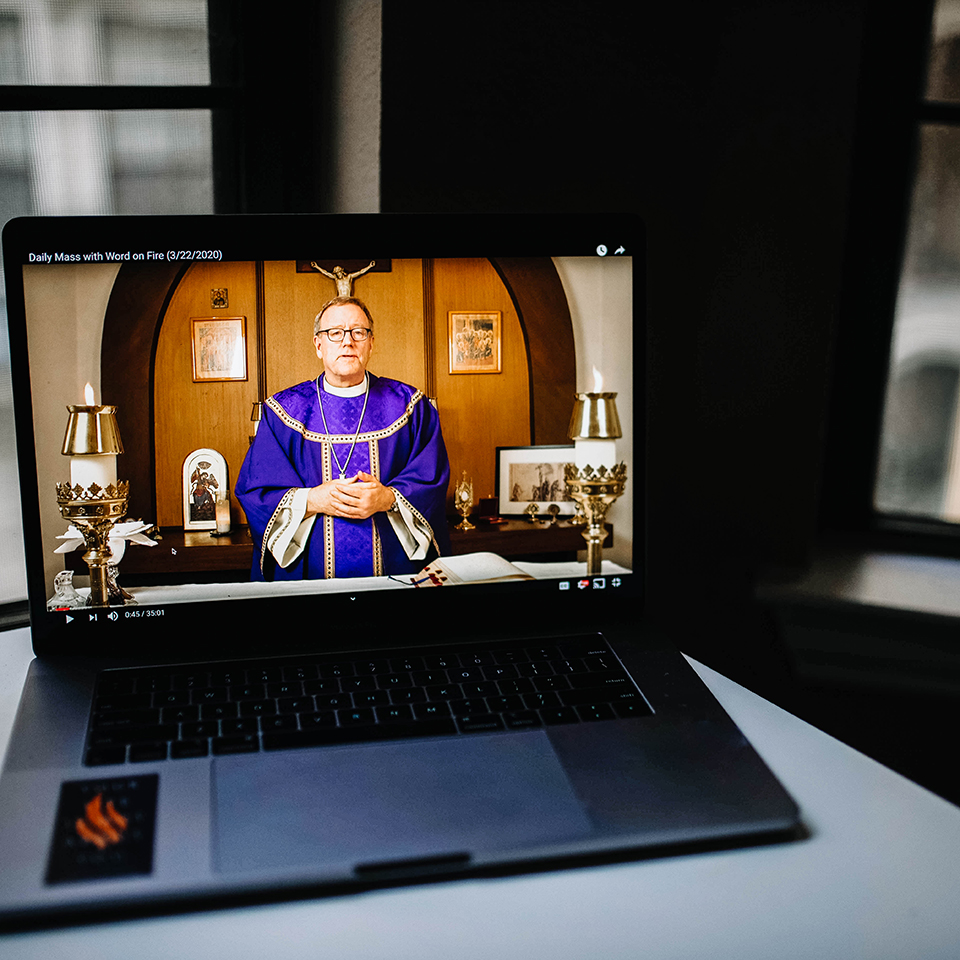Priest of Jesus Christ, celebrate this Holy Mass as if it were your first Mass, your last Mass, your only Mass.
—St. Teresa of Kolkata
My first experience of the Mass happened on an Easter Sunday, and we arrived right on time, which on that day meant we were ten minutes late. We had to sit in the very back of the balcony. I couldn’t see what was happening on the altar, but I could smell the incense wafting up to the rafters. I could hear the clang of the thurible, and the beautiful hymns rising to heaven. I could feel my heart finally finding its place.
When I got into the car with my then-boyfriend, now-husband, my silence was deafening. We pulled into his parents’ driveway and he asked what was going on. I remember him telling me, “You either hated that or you loved it.”
And the same affectivity takes place within me as I type this, remembering my response: “I finally found home.”
The last Mass that I went to was at our diocesan Permanent Diaconate Formation monthly retreat. Even then, there were more empty seats than usual as people were already taking precautions against the novel COVID-19 virus, which seemed to be lurking over our shoulders and ready to pounce.
I didn’t know it would be my last in-person Mass for who knows how long.
Now, amidst the quarantines, we are able to see the fullness of humanity coming to light. We are seeing the helpers coming out in droves, and just as we have in other moments of great turmoil, we are coming together in a deeper way.
A few weeks ago, I shared the day with some college students, speaking about communion. The very last talk was about how we cannot experience authentic communion when division lies in our hearts. I had no idea how poignant that would become for me now, in our present situation. Perhaps this time of social distancing is a time to eliminate the distance between your heart and the heart of God, using every tool your co-religionists are making available.
If love is willing the good of the other, then suffering allows us to really understand what that means. Suffering purifies love. “I love my neighbor” might mean that right now, you should stay 6-8 feet away from them. This particular suffering has reminded us of what is most important.
This communion of suffering has made us thankful for medical workers, for teachers, for grocery store workers, for small business owners, for stay-at-home parents, for gyms, for restaurants, but most of all for Holy Communion in and of itself. We are, all of us, gaining a new, deeper understanding of what it means to be with one another, even in less-than-optimal situations—even, paradoxically, from behind screens.
As Catholic Christians, and as readers of this blog, you can now see—with the focus of a laser—why this digital space actually exists. The Word on Fire mission has been most effective in this medium, placing “an emphasis and urgency on the use of contemporary forms of media and innovative communication technologies.”
Now, everyone’s on board, and technology, digital media are helping to bring us all together.
Masses are being livestreamed across the world. Eucharistic Adoration is coming at us electronically. Conferences, missions, study groups, and everything in between is happening through technology.
Technology and cyberspace are actively being reclaimed for the glory of God. The New Evangelization is happening, and we are all a part of it.
When the quarantines lift and the social distancing is closed, the hope is that our hearts will be more unified. The suffering that has brought us together in communion and solidarity has the supernatural ability to bring together our hearts, though we may be absent in tangible nearness.
And all of this has renewed, above all else, that there is nothing that can replace God. Church doors may close, but the heart of God is still wide open. He is seeking us even in isolation. And somewhere in the world, there is a priest holding up the Body and the Blood of Christ, and remembering your intentions.
The truth is, that’s always been a reality. But this present suffering allows us to understand fully what that offering really means. We are always together in the Eucharist, even when we are apart.

